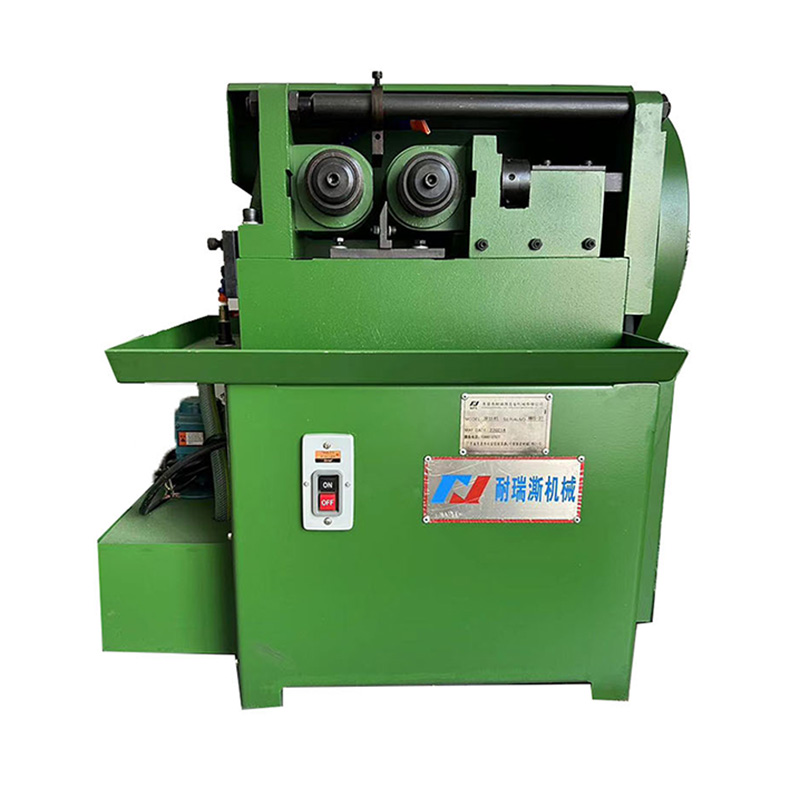The Comprehensive Guide to Small Rebar Thread Rolling Machines
2024-07-11
Introduction
Rebar, or reinforcing steel, is a critical component in the construction industry, providing the necessary strength and support to concrete structures. One essential process in the preparation of rebar for construction is thread rolling, which enhances the rebar's connectivity and structural integrity. Small rebar thread rolling machines have become increasingly popular due to their efficiency, precision, and portability. In this blog, we will explore what a small rebar thread rolling machine is, how it works, its advantages, and its applications in the construction industry.
What is a Small Rebar Thread Rolling Machine?
A small rebar thread rolling machine is a specialized tool used to create threaded ends on rebar, allowing for the secure joining of steel bars in construction projects. These machines are compact, easy to transport, and designed to handle rebar of various diameters. Despite their size, they offer high precision and efficiency, making them ideal for on-site construction work.
How Does a Small Rebar Thread Rolling Machine Work?
The operation of a small rebar thread rolling machine involves several key steps:
1. Preparation: The rebar is cut to the required length, and any surface irregularities are removed to ensure a smooth threading process.
2. Clamping: The rebar is securely clamped in place within the machine to prevent any movement during the threading process.
3. Thread Rolling: The machine uses a set of hardened steel rollers to deform the surface of the rebar, creating a thread pattern. This process is known as cold rolling, as it occurs at room temperature without heating the rebar.
4. Finishing: Once the thread is formed, the rebar is inspected for any defects, and any excess material is removed to ensure a clean, precise thread.
Advantages of Small Rebar Thread Rolling Machines
1. Portability: The compact size of these machines makes them easy to transport and set up on construction sites, providing flexibility and convenience.
2. Efficiency: Small rebar thread rolling machines can quickly and accurately produce threads on rebar, reducing labor costs and increasing productivity.
3. Precision: The machines are designed to create precise, uniform threads, ensuring strong, reliable connections between rebar sections.
4. Cost-Effective: Investing in a small rebar thread rolling machine can save money in the long run by reducing the need for pre-threaded rebar and minimizing waste.
5. Versatility: These machines can handle rebar of various diameters and lengths, making them suitable for a wide range of construction applications.
Applications in the Construction Industry
Small rebar thread rolling machines are used in various construction projects, including:
1. Building Construction: Reinforced concrete structures, such as columns, beams, and slabs, require threaded rebar for secure connections and enhanced structural integrity.
2. Bridges: The construction of bridges involves the use of rebar to reinforce concrete components, ensuring durability and load-bearing capacity.
3. Tunnels: Rebar is used to reinforce the concrete linings of tunnels, providing stability and preventing collapse.
4. Industrial Facilities: Factories, warehouses, and other industrial buildings often require reinforced concrete foundations and structural elements, making threaded rebar essential.
Conclusion
Small rebar thread rolling machines are a valuable asset in the construction industry, offering portability, efficiency, and precision. By understanding how these machines work and their advantages, construction professionals can make informed decisions about incorporating them into their projects. Whether building a skyscraper, a bridge, or an industrial facility, a small rebar thread rolling machine can enhance the strength and reliability of reinforced concrete structures, contributing to the overall success of the construction project.



